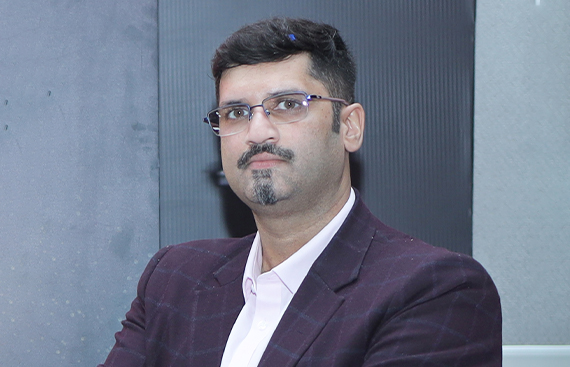Sustainability among Indian Businesses - A Brief Overview

Having completed his Post Graduate Diploma in Marketing from Institute of Management Technology, Ghaziabad, Vikram boasts of a two decades long career during which he has worked with companies such as L’Oréal, Perfect Relations, Domino’s Pizza, AkzoNobel, Whirlpool Corporation, Samsung Electronics and d.light, prior to joining Ariston in 2020.
In a recent conversation with Siliconindia, Vikram Raman, VP - Marketing & E-Commerce, Ariston Thermo India shared his insights on sustainability among Indian businesses in recent times and many other related aspects. Below are the excerpts from the exclusive interview
Share your thoughts on the sustainability practices currently being implemented by Indian businesses.
Currently, there has been an increased adopting of energy efficient technologies among majority of the companies in India due to the growing awareness among both individuals and enterprises on the current environmental crisis. We are witnessing the emergence of waste reduction technologies, recycling programs and a strong push towards renewable energy by companies across all verticals. Also, government policies & initiatives such as Make in India are also encouraging sustainable manufacturing practices to a great extent. Additionally, the government and regulatory bodies are urging businesses to publish whatever they are doing in terms of sustainability so that the government has a clear picture of what elements are the different elements involved in the manufacturing process and the areas where implementation of stringent compliance policies might be necessary in the future. As a result, there has been a lot of awareness being created with regards to sustainability among every stakeholder of every industry.
Throw some light on a few latest technologies that are driving sustainability among Indian organizations, along with their use cases.
Most of the manufacturing units and industrial setups have shifted towards solar energy, wherein their dependence on renewable energy sources it today at an all-time high. With the necessary systems and processes, reducing carbon footprint to the maximum extent possible has been one of the key visions of all organizations lately. Solar thermal systems for generating electricity and water heating not only reduces carbon footprint, but also greatly reduces maintenance and other allied costs associated with the manufacturing process. Also, heat pump technology is enabling businesses to convert the heat that is present in the atmosphere into electricity and thermal energy to be used for heating water. This is also being used increasingly by end customers who aspire being more sustainable in their daily lives.
Suggest a few measures that enable businesses to balance between sustainability and process optimization.
Balancing between sustainability and process optimization in India requires businesses to employ a strategic approach. While most organizations think of profitability perspective as a short term goal, sustainability in an organization is a long term goal. With the increased awareness among consumers and the rising demand for sustainable products, companies are now left with no other choice but to go the sustainable way and inculcate eco-friendly practices. As a result, companies can effectively balance between these two critical aspects by integrating sustainable practices into their existing practices in a gradual, step-by-step manner. Most importantly, companies must keep in mind that technology plays the role of an active enabler in this regard and adopt cutting-edge technologies without being skeptical about the investment costs that might be involved in the process.
What role do the government and other regulatory bodies play in encouraging sustainability among Indian enterprises?
The government plays a pivotal role in promoting sustainable practices among all companies in the country. While it is difficult for an individual to make a huge impact in terms of sustainability, he/she along with their entire company can collectively have a definitive impact in terms of sustainability with the help of government and policy makers. Thus, it is very important for the regulatory bodies to device and enforce the necessary environmental regulations, along with encouraging businesses to adopt eco-friendly practices through various incentive programs. As a result, there must be a collective effort from both companies and regulatory bodies to ensure a large scale impact in terms of sustainability.
How do you expect sustainability to shape-up in India in the coming years?
Going forward, the future of sustainability is both promising as well as challenging. With a heightened awareness among all about various environmental issues, there has been a sustainability has been showcasing a very strong momentum across every industry. Also, due to the increased awareness and responsibility among today’s kids in terms of sustainability and environment, there is a huge expectation that the upcoming generations will work towards sustainability in the coming days. However, Since India is still a developing market, it faces two major challenges – rapid urbanization and industrialization, which will possibly create a lot of strain on resources. Thus, the future of sustainability majorly depends on balancing between this economic growth and sustainable practices.
Read More News :
Digital Business Methodology - The Present Scenario, Use Cases & Future Prospects
Semiconductor Industry in India - Current Industry Scenario & the Way Ahead





.jpg)